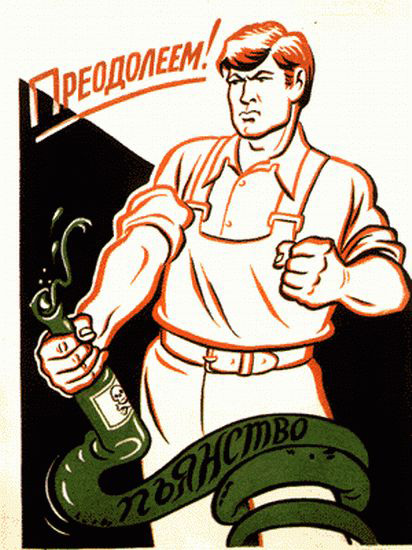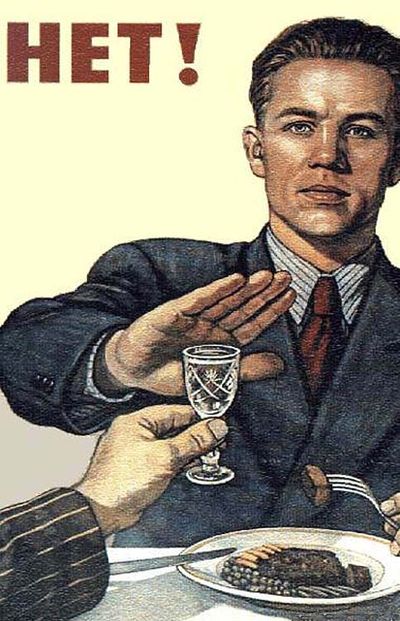See more posters at http://www.wineterroirs.com/2013/12/soviet_union_anti_alcohol_campaigns_propaganda.html
The “Dry law” is the order by Mikhail Gorbachev, the head of the USSR in 1985-1991, about “strengthening the fight against alcoholism”. It implies a reduction of the production of alcoholic beverages (massive cutting down the vineyards was the consequence of this) and the time limit of its free sale (from 2 pm to 7 pm)
During 1986-90 years the life expectancy of the male population in the USSR increased by 2.5 years, reaching almost 63 years. It was also a turning point in the fight against cardiovascular disease. Crime intoxicated rate has decreased several times.
Before the law was issued the manufacture and sale of alcoholic beverages had amounted by some estimates 25-30% of the State budget. Shortly after the “dry law”, production of vodka has decreased from 806 million to 60 million liters. This period was quite depressive for the Soviet economy: oil prices dropped, the tragedy on the Chernobyl nuclear plant occurred in 1986, and finally the state budget didn’t receive about 25% of funds because of the partial ban on alcohol. All this has led to the fact that for the first time in many years the Soviet state budget has missed many interests and became deficient!
Restricting the sale of vodka did not lead to the effect that the legislators were expecting. Instead of sobriety, they saw huge lines in the liquor stores, people were late for work, college students skipped classes. Those who did not want to stand in lines started to use a variety of chemicals that contain alcohol: colognes, adhesives, various detergents. This led to a large number of deaths among the working population.

